Written by Aayusha Prasain – CEO, Community Homestay Network
During the Fireside Chat at GX India 2024, Tony Wheeler, the visionary co-founder of Lonely Planet, made a powerful point: no country is inherently dangerous. It’s not about avoiding places but connecting with the destinations you visit.
The event, brilliantly organized by G Adventures and powered by Planeterra, served as a testament to this idea. Wheeler shone a spotlight on lesser-known destinations like Chad and Sudan, recommending them for the remarkable, often untold experiences they offer.
His insights reminded many of us present there that the stories we typically hear about these countries, especially in the Global South, framed by danger, poverty, or instability, only present part of the picture. Community tourism aims to change that narrative, revealing the true pulse of a destination through its culture and people. It emphasizes the richness, resilience, and humanity that define these regions. Wheeler’s reflections encouraged us all to rethink our perceptions of the world.
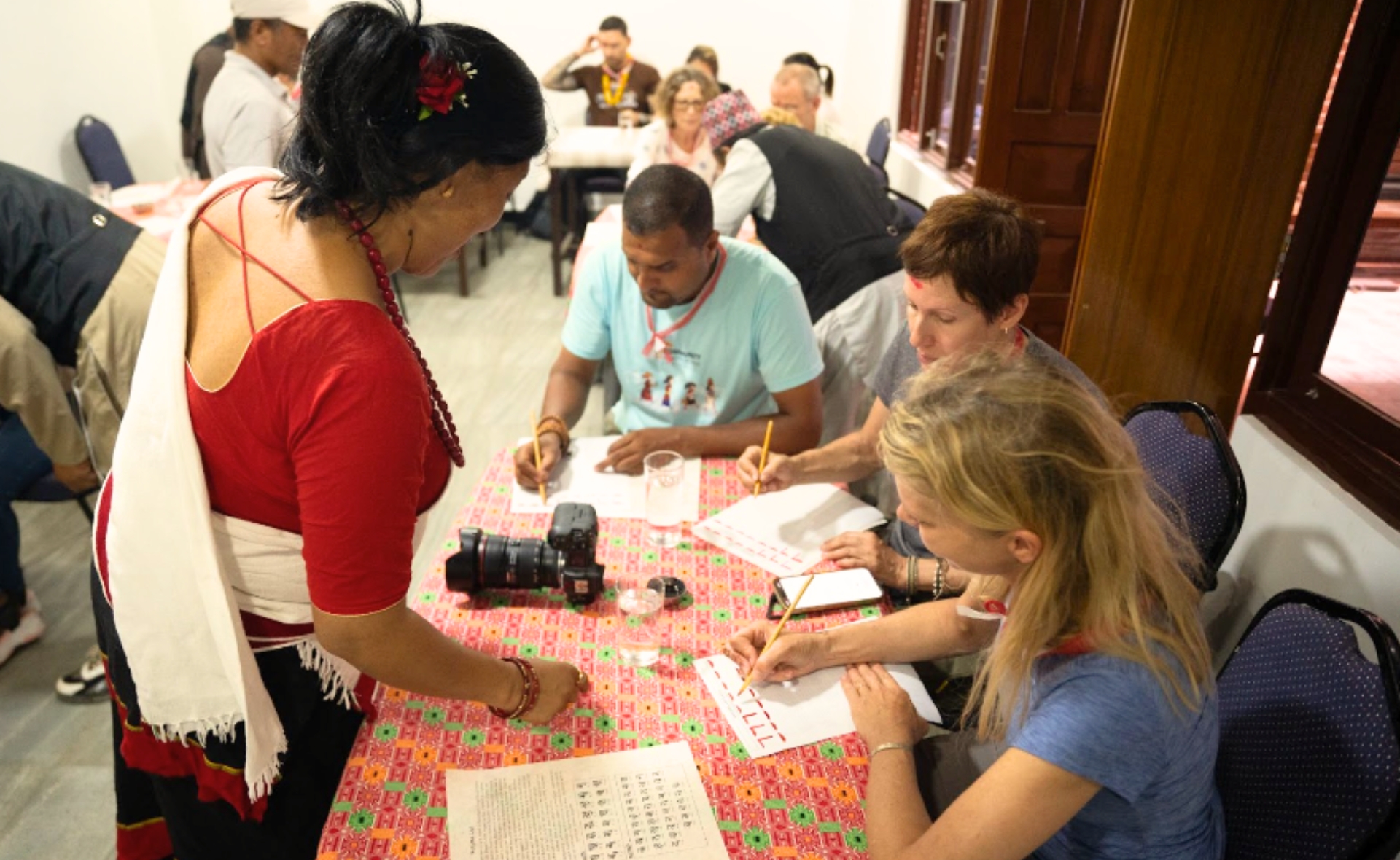
My Journey Through Travel and Community
Reflecting on my own journey, I realize that my childhood travel experiences significantly shaped my perspective on culture and community. Growing up, we moved frequently across Asia, following my father’s work in community initiatives. Living in places like Mongolia and the rural Chin State in Myanmar, along with my travels across Nepal exposed me to the beauty of cultural diversity.
While my father’s commitment to development inspired me, it was my mother’s passion for local languages, food, and social fabrics that left a lasting impression. Her ability to turn every new place into a home; speaking local dialects with market vendors or blending local ingredients with our family recipes instilled in me the understanding that home is not tied to a single location. It’s a feeling you carry within you, found in shared smiles, warm conversations, and bonds that go beyond borders.
As I grew older, my love for travel deepened into a calling. My academic background in Development Studies took me to various parts of Nepal, where I gained insights into the country’s rich cultural complexities and diverse geography. I learned that development isn’t just about top-down projects; it’s about building local ownership and fostering entrepreneurship.
Given Nepal’s rich natural and cultural diversity, along with the vital role tourism plays in the economy, it is essential to discuss the kind of tourism we want to promote for a sustainable future. As the CEO of the Community Homestay Network (CHN), I believe we are well-positioned to leverage our partnerships with local communities, impact partners, and tourism stakeholders to advocate for community tourism as the norm in the travel industry, rather than merely a niche segment.
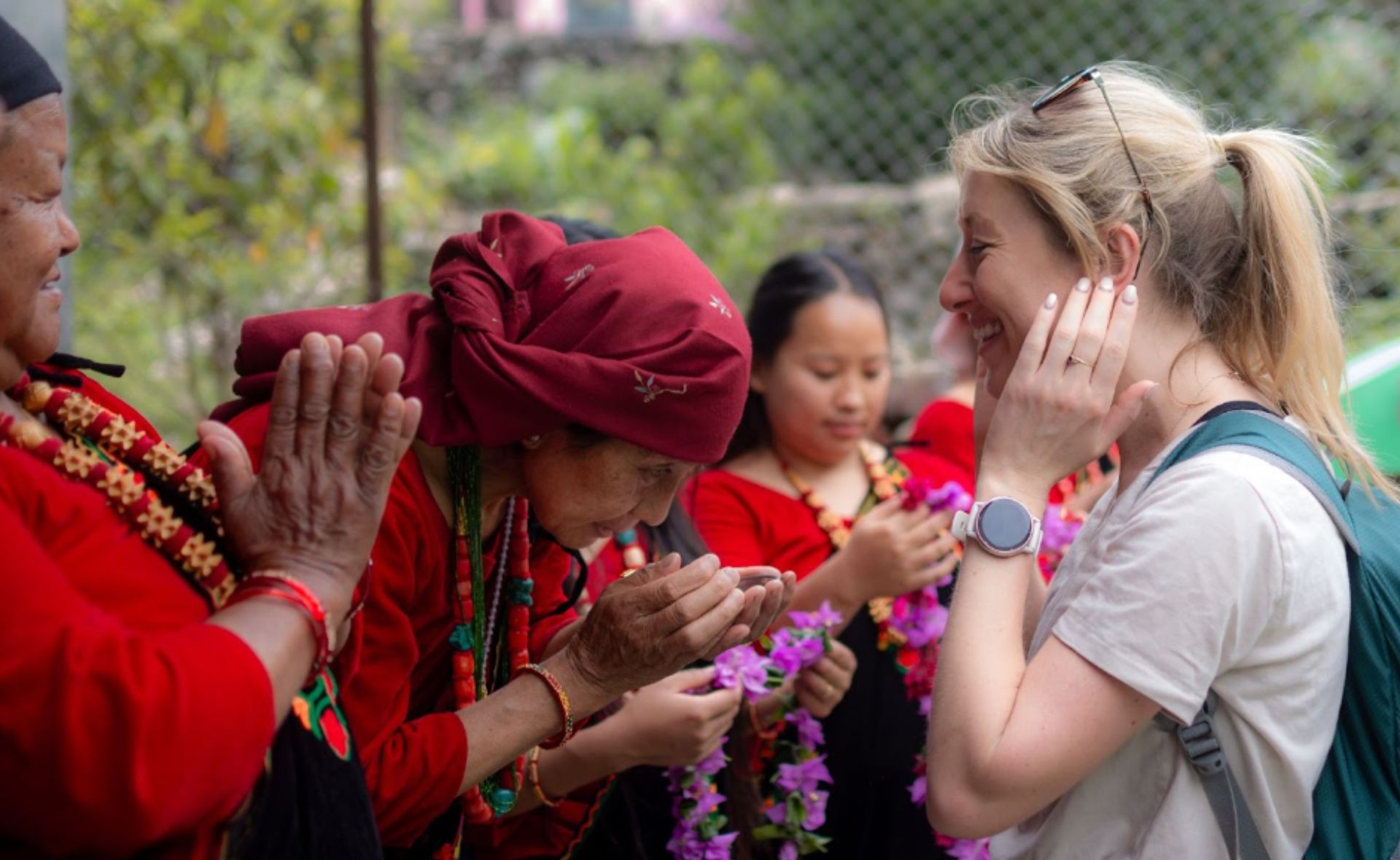
We are grateful for the opportunity to collaborate with communities and strategic partners like Planeterra to build, strengthen, and promote tourism products that benefit both travelers and locals. By developing locally owned tourism initiatives, providing training, and creating market linkages, we work closely with communities to establish resilient ecosystems.
The Impact of Community Tourism
At CHN, we firmly believe that community tourism can be a transformative tool for sustainable development, not just in niche markets but across the entire industry. Our partnership with Planeterra has been crucial in helping us move beyond viewing communities as mere beneficiaries. Instead, we examine the socio-economic and environmental costs they bear.
Last year alone, Planeterra significantly contributed to co-organizing initiatives such as the Community Haat Bazaar and supported the creation of community-led experiences in Nepal, including a women-led Momo cooking class in Kirtipur and Breakfast at Sharing Seeds in Pokhara.
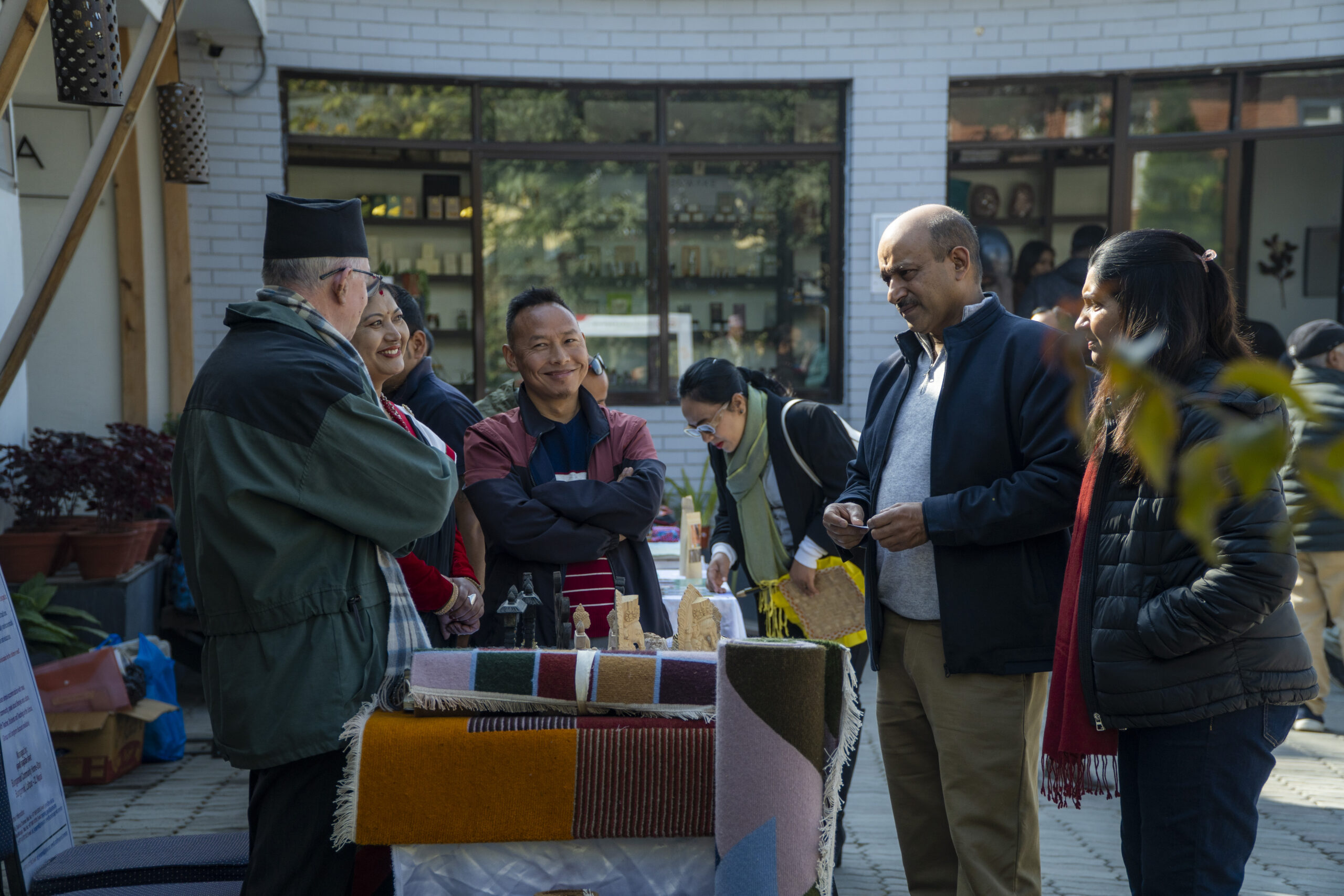
With a steady influx of travelers engaging in these experiences, our efforts have significantly empowered local communities, providing financial autonomy to women and strengthening cultural ties between travelers and communities.
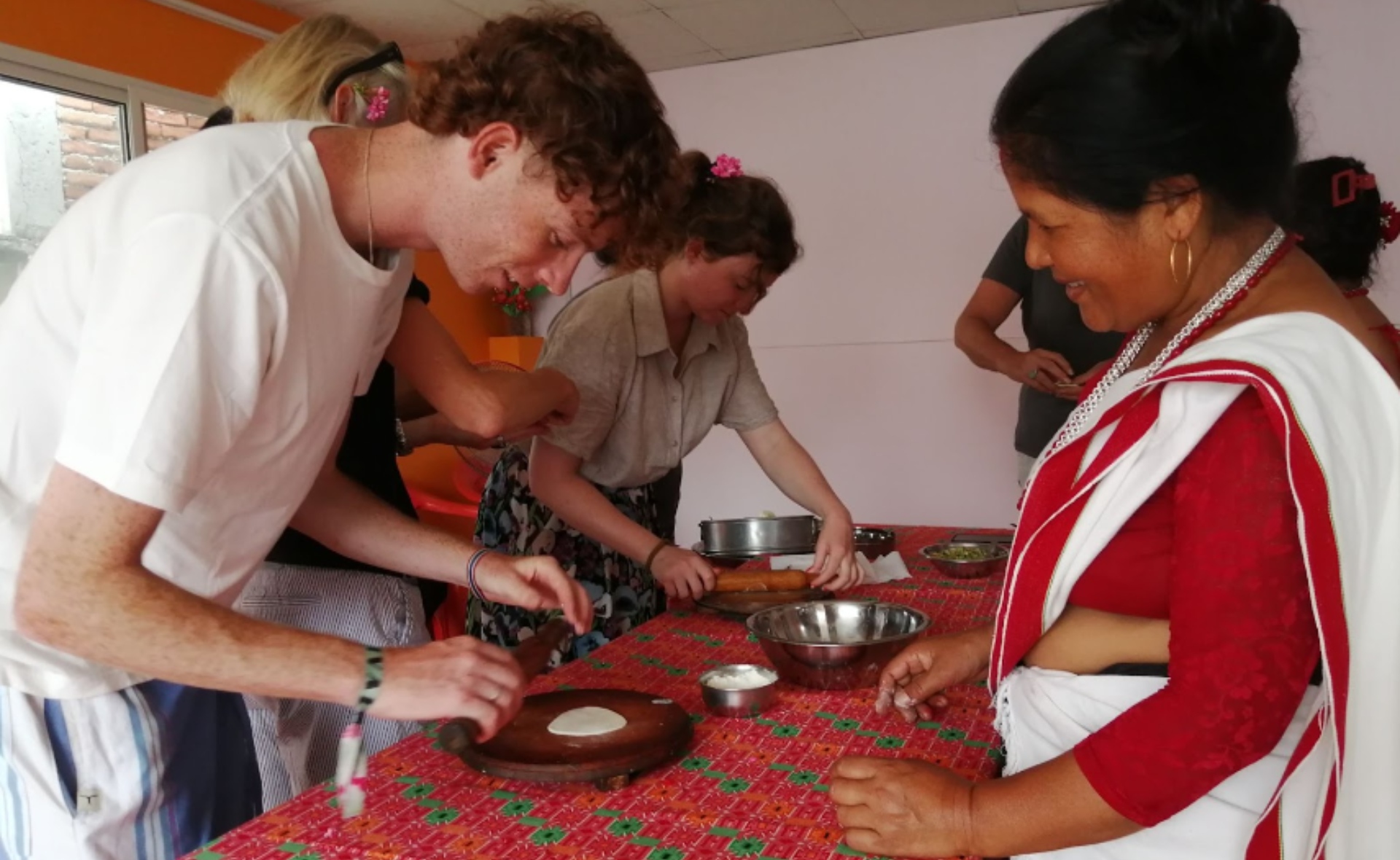
Similarly, during the Planeterra Marketplace at GX India, I was able to witness the power of community tourism beyond my direct experience of working with communities in Nepal.
Nine communities from across India came together to offer immersive experiences, showcasing how travelers can engage in meaningful, hands-on activities that reveal deeper impacts on the communities involved.
A standout experience was block printing with Anoothi India, an organization that trains women in traditional Indian textile skills.
Historically, block printing has been a male-dominated craft in India, but Anoothi is challenging this norm by empowering women to master the trade. The textiles they produce emphasize ethical practices and environmental consciousness.
Hearing the stories of these women, who defy societal expectations to excel in a craft traditionally reserved for men, was incredibly inspiring.
It highlighted how community tourism transcends financial benefits; it strengthens empowerment, challenges gender roles, and transforms lives in profound ways, creating intergenerational ripple effects.
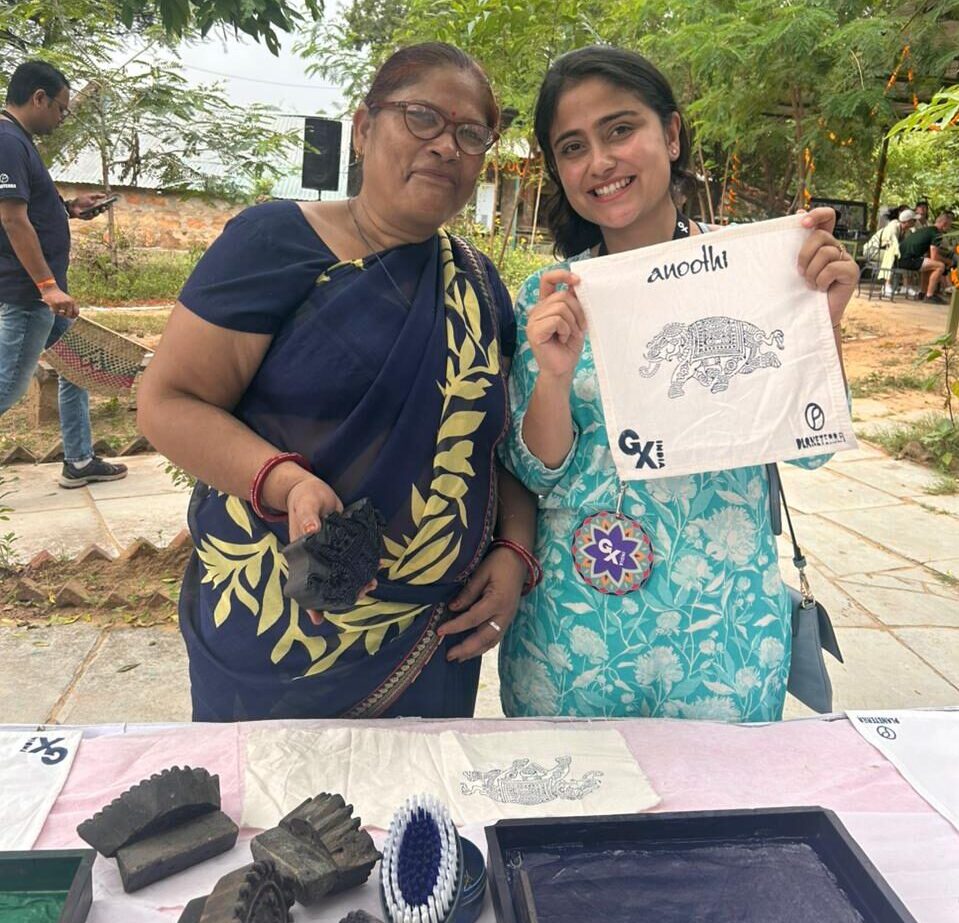
Rethinking Tourism Narratives
It is crucial for us to rethink how tourism is presented and the narratives we promote. As Chimamanda Ngozi Adichie powerfully articulated, “Stories have been used to dispossess and malign, but they can also be used to empower and humanize.” Reflecting on Adichie’s TED Talk, “The Danger of a Single Story” I recognize how narratives shape perceptions.
In the travel industry, we must be cautious about the stories we create about communities. Tourism often serves as one of the largest sources of information people have about a country, offering a unique window into its soul, which comes with great responsibility.
Too often, Nepal is portrayed as a country in need of saving or a poor but kind nation where travelers arrive with a savior mentality. Many visitors participate in Tharu cultural experiences yet engage superficially, settling for just the performances that don’t convey the full story of this vibrant culture. These oversimplified versions of community life can do more harm than good. We must ensure that tourism reflects the full complexity of the places and people it engages with.
Community tourism can challenge the single story by going beyond traditional tourism models and deeply engaging travelers with local cultures. It requires a meaningful approach that emphasizes local participation in tourism development and management, ensuring that economic benefits directly support sustainable livelihoods and cultural preservation efforts. Community tourism is not confined to remote areas; it can thrive in urban settings like Kathmandu and Pokhara, where travelers can engage with diverse cultural experiences. Providers have the opportunity to share their heritage and cultural identity in ways that extend beyond mere entertainment or lodging.
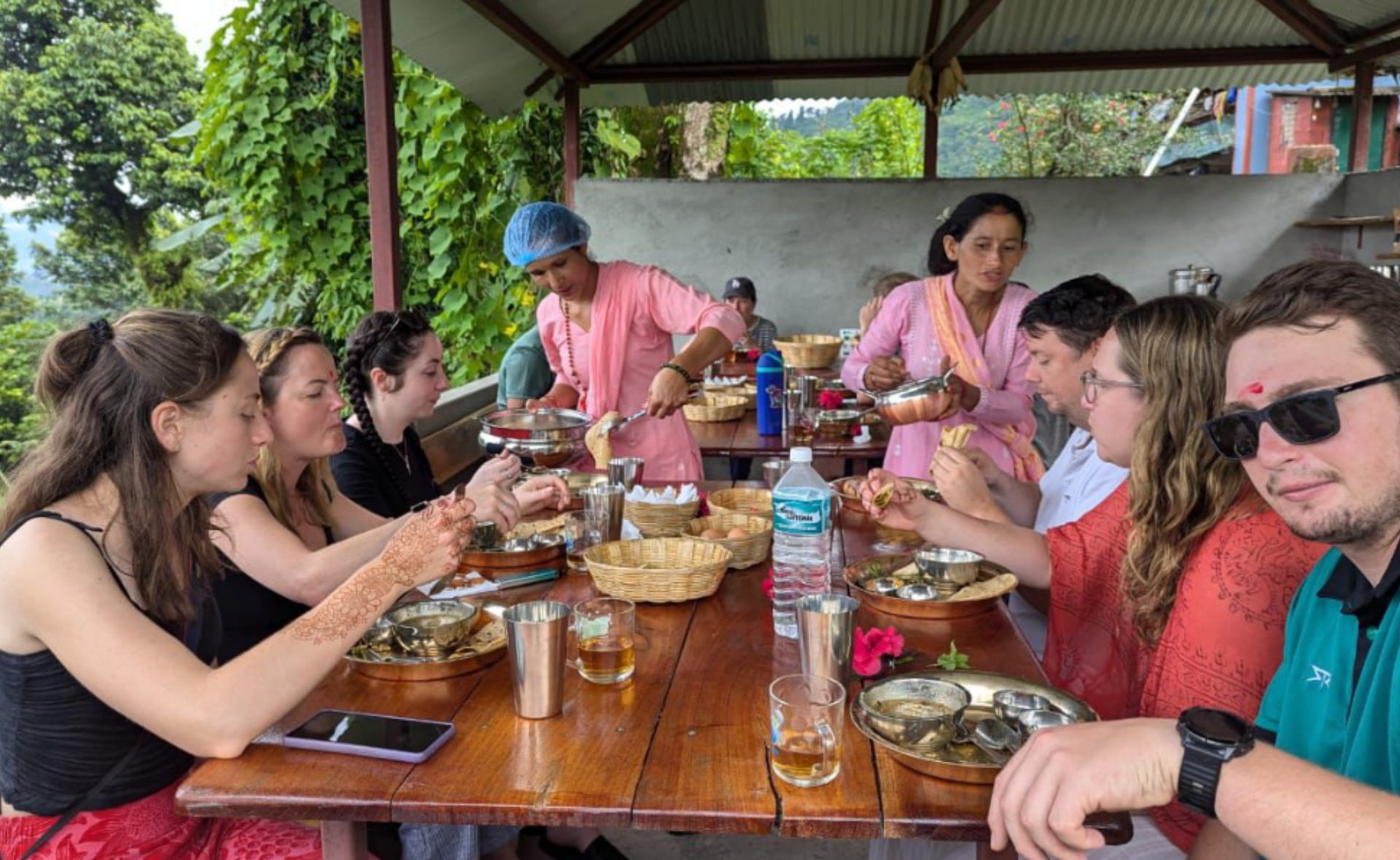
Building community tourism requires patience, respect, coordination, and collaboration at all levels
The Role of Tourism in Fostering Understanding: As we recently celebrated World Tourism Day with the theme of “Tourism and Peace,” attending GX India on the same day highlighted the significant role tourism plays in fostering understanding, breaking down barriers, and building bridges between cultures.
My travels across Nepal and Asia have reinforced the idea that cultural contexts are nuanced, and no single story defines any place.
While developed nations like the United States grapple with issues like gun violence, they also have the privilege of sharing multiple narratives. In contrast, countries like Nepal or India often find themselves limited by oversimplified or romanticized stories in global media. Yet community tourism provides an opportunity to reshape these narratives.
Moreover, community tourism is about more than just boosting numbers; it’s about building confidence and driving meaningful change. Some key takeaways from GX India that we, as travel industry professionals and travelers, must reflect on include the crucial role community tourism plays in empowering women, addressing climate biodiversity, and unlocking the tourism industry’s untapped potential.
The discussions highlighted the importance of partnerships and resources in ensuring that communities remain at the heart of these destinations, where travelers may visit briefly but leave a lasting impact.
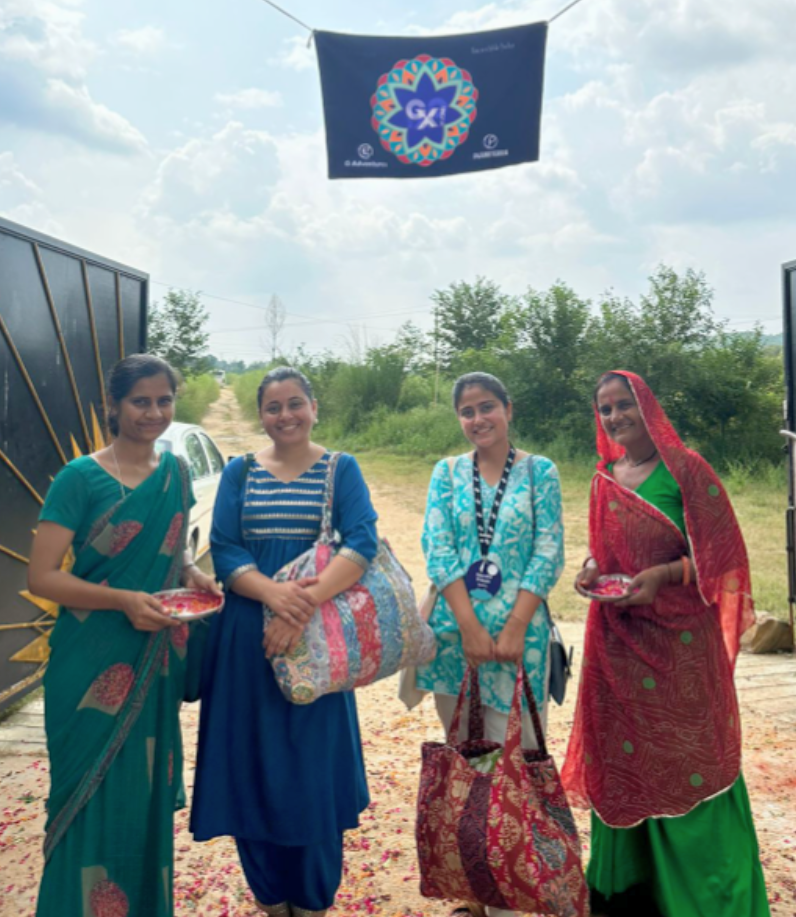
Working alongside remarkable communities and organizations has strengthened our belief that this community-centered narrative in tourism offers a path to break free from outdated perceptions, creating a richer, more diverse story. This is how we break the mold by shifting narratives and showcasing the strength, resilience, and beauty of communities, one story at a time.
About the author:
As the CEO of Community Homestay Network (CHN), Aayusha Prasain is working towards strengthening the organization while streamlining and scaling the impact of tourism across communities. Along with her team at CHN, she also works towards bringing local actors into the tourism value chain and promoting responsible and inclusive tourism.
Visit www.communityhomestay.com to learn more about CHN’s work.



Post a comment